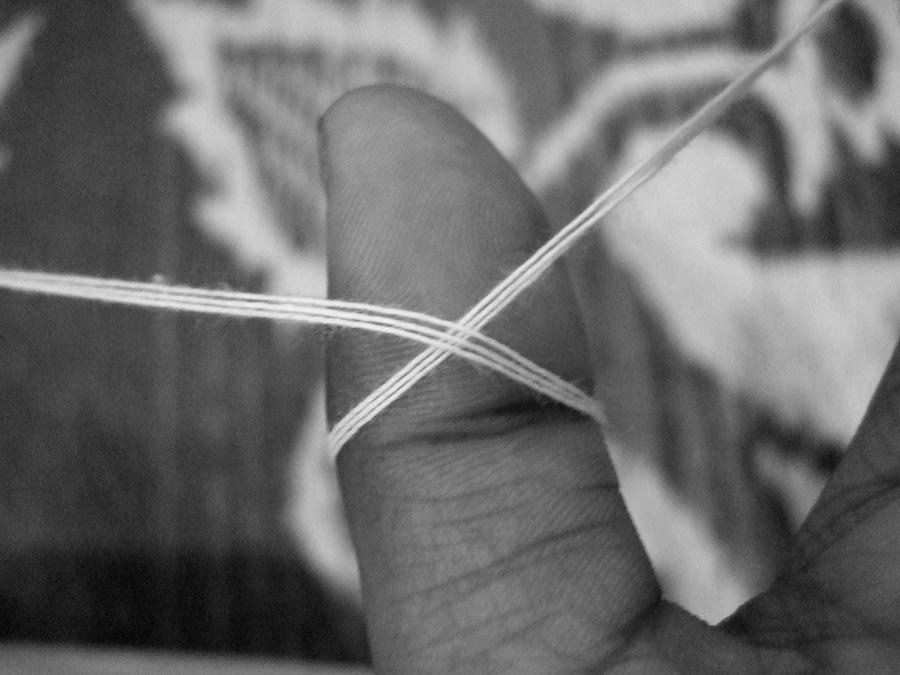I like games. I like cooperative, team-building games in particular.
Here is a game called Midnight Adventure that I played in competition with several teams:
A group of five people (my team) worked together to carry a heavy railroad tie through midnight darkness and complete one circuit around a large building. Along the way, we listened in the dark for audible cues from non-participants and took instructions from them. Those people awarded us tokens, and my team required a certain number of tokens to finish the game. Also, team members were not allowed to talk with each other. There was one surprise thrown in, too: nobody mentioned that some of the non-participants were waiting in the dark to mislead us and obstruct us from our goal.
As luck would have it, my team came in first place, but that was hardly the point because the game taught me a lot about myself and how I work with others. My group had elected a team leader beforehand, and that short process alone illustrated how people in our group vied for dominance or avoided leadership roles. Meanwhile, the presence of mischief-makers along our journey revealed how some people on my team followed directions blindly — or maybe they had just tuned-out during the pre-game instructions. As for me, my innate mistrust of people alerted me to the mischief-makers, but I was hampered by the “no speaking” rule and could only groan loudly when our team was hoodwinked and lost tokens to them.
Leadership roles typically make me uncomfortable — for a variety of personal reasons. As an egalitarian, I am opposed to dominance hierarchy or any social system where people with power have greater access to resources than others. I am generally ambivalent about leadership in society, and I’ve wondered whether leadership is ever non-hierarchical. I have met authoritarian, tyrannical leaders who caused misery and left their followers dispirited or angry, yet I have also witnessed weak leaders whose crew was directionless and aimless. In other words, leadership can be ineffective just as easily as it can be productive.
Like many Americans, I grew up in a culture where systems of hierarchy (social, governmental, financial) pre-dated my birth, and I never really questioned their existence. I became so adept at navigating hierarchies that it was challenging for me to operate in an egalitarian community without resorting to my familiar survival techniques. A decade ago, I lived for a while at an intentional community that was leaderless and made consensus-based decisions. Except for the existence of an external board of directors, it was anarchy.
While I lived there, I participated in weekly meetings where residents proposed ideas, made requests, and doled out resources and finances. I observed that the group decisions could be stalled for weeks by an unwilling resident or the process of consensus easily subverted, and sometimes the group failed to make a decision at all. In those moments, as much as I opposed hierarchy, I sorely missed effective leadership. The residents there used to tell a story about a law enforcement agent dispatched to their land. He arrived and asked questions of the residents but became frustrated by the lack of response, so he finally asked, “Who’s in charge?” The punchline to the story was the answer: nobody.

Recently, I was part of a kitchen crew that cooked and worked together in a commercial cafeteria for four days, and one afternoon we took a break from our food prep to participate in a team-building exercise. The exercise was simple in concept: all of us sat in a circle with a piece of paper in the middle. We each held a cord connected to a marker that lay on top of the paper, and by working together we had to manipulate our individual cords and write a word with the marker hovering over the paper. It was a true challenge, but we managed to write the word “gold.”
I think there is something magical about working cooperatively with a group of individuals. For me, the goal of ensuring that every person contributes in a good way supersedes the importance of accomplishing a task with grace or style. In the aforementioned exercise, I realized that our group would be happy if our finished word was merely legible, so I changed my own expectations accordingly. When I cooperate with others, my focus shifts from a merit-based evaluation of others (how much does so-and-so contribute) to accepting and honoring people as they are — differently-abled from me. And as much as I appreciate the aesthetic beauty of art crafted by a master, I also find beauty in the clumsy writing of eight people from a kitchen crew –unrelated and unfamiliar– that worked together to write a single word.
In college, I found I had an aptitude for Chinese and Japanese calligraphy, and I think the word we wrote, gold, contains elements that resemble brush calligraphy; but that’s not what makes it beautiful to me. Instead, when I look at the word we wrote, I remember all the voices clamoring over that piece of yellow paper. I remember that sometimes we tried directing each other, “Now, pull it– pull it towards you.” But we also realized results just by sharing information, “You’re cord is too tight. You need to give it some slack.” And when I look at the outcome of our efforts, I cannot see any part of it that is mine alone. I can only see it as ours, and therein lies its beauty.


Share this post with your friends.

